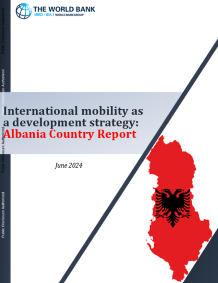Migration is a powerful force for economic development in the Western Balkans. With around 5 million people born in the Western Balkans living abroad, the region is deeply shaped by mobility. Migration has implications on different aspects of people’s lives ranging from labor markets and skills availability to household welfare and social cohesion. At the same time, the region faces the dual challenge of continued emigration and growing labor shortages, a trend that requires coordinated national policies and enhanced regional collaboration.
The World Bank has placed migration at the center of its engagement across the world. At the global level, the 2023 flagship World Development Report: Migrants, Refugees, and Societies examined how mobility can be a driver of shared prosperity. At the regional level, The Journey Ahead: Supporting Successful Migration in Europe and Central Asia report explores the specific migration challenges and opportunities facing countries in this part of the world. For the Western Balkans, the Fall 2024 issue of the Western Balkans Regular Economic Report explores the potential for migration to become a driving force for economic development in the region.
To complement its global and regional work, the World Bank has also conducted in-depth, country-specific analyses for several Western Balkan countries including Albania, Bosnia and Herzegovina and Kosovo. These reports highlight how migration influences economic and social outcomes, and how well-designed policies can help countries better manage its impacts.
The analyses also identify areas where further action may be needed – such as strengthening migration partnerships with other countries, deepening the engagement with the diaspora, supporting returning migrants, developing fit-for-purpose immigration systems, and investing in better migration data.
These reports are intended to inform and support governments, development partners, and stakeholders in the Western Balkans as they develop migration strategies that are evidence-based, context-specific, and aligned with broader development goals.


